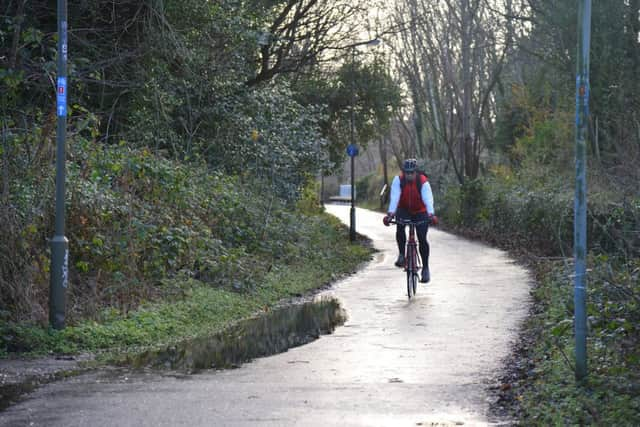Scots charities urge eco-friendly use of road tax


A group of charities made the plea after Chancellor George Osborne announced he would be putting money from vehicle excise duty (VED) into a new roads fund for England.
Mr Osborne pledged to consult with the Scottish Government and other devolved administrations on “how the money is allocated there”.
Advertisement
Hide AdAdvertisement
Hide AdBut charities - including WWF Scotland, Ramblers Scotland and Friends of the Earth Scotland - are calling on Holyrood ministers to adopt a different approach when spending their share of the cash.
Mr Osborne said in his Budget earlier this month that ‘’every single penny raised in vehicle excise duty in England’’ will go into a new roads fund to pay for ‘’sustained investment our roads so badly need’’.
In Scotland, however, the charities - which also include Transform Scotland, Sustrans Scotland, Paths for All and Living Streets Scotland - say part of the cash should go on infrastructure to increase walking and cycling.
While they say a repair fund should be established for the local roads network and footways, they also want some of the money to be spent on ensuring buses and trains are better linked up with walking and cycling networks.
In a letter to the Scottish Government, the seven charities called on ministers at Holyrood to adopt “an approach which reflects Scotland’s world-leading ambition on climate change”.
Colin Howden, director of Transform Scotland, said: “Vehicle excise duty is a tax on pollution but the UK Government’s plan in England will see it used to increase traffic and pollution.
“We have an opportunity to do things differently in Scotland. Investing in a repair fund for our footways and local roads - where most everyday journeys are actually made - will benefit pedestrians, cyclists and drivers alike without increasing road capacity.”
John Lauder, national director of Sustrans Scotland, said: “It is good that in Scotland we have clear government support for walking and cycling. We’ve made big strides but there’s much still to do.
Advertisement
Hide AdAdvertisement
Hide Ad“Continued investment in cycling and walking, and better integration of active travel with public transport, will enable more people to choose healthier, cleaner and cheaper journeys while reducing congestion and making Scotland’s communities more attractive and liveable places.”
WWF Scotland director Lang Banks said: “With climate emissions from transport stuck at 1990 levels, Scottish ministers have the ideal opportunity to think smarter about how they’ll spend the money raised from vehicle excise duty.
“If spent wisely on infrastructure that supports alternatives to the car, such as walking and cycling, the Scottish Government could deliver the double win of improving public health and helping to achieve its world-leading climate ambitions.”